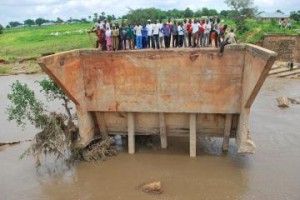By government admission, some of the 150 private jets in Nigeria are used to ferry more than passengers; they are being used to fly huge sums of money out of the country. That, by itself should not be a surprise in the view of lawyer and activist, Femi Falana, who observes that most of the jets are owned by fuel subsidy thieves. Transporting the sum of N2.6 trillion – the amount crudely stolen in the fuel subsidy scam – obviously requires crude methods as well.
Those that do not have private jets are forced to travel like mere mortals – though with hundreds of thousands, if not millions of dollars in their luggage. That the Nigeria Customs Service manages to catch a few of these ‘cash movers’ every now and then is indicative of how widespread the practice probably is. It may be that the amount of money in private hands is beyond the capacity of the Nigerian economy to absorb as investments or more likely, the owners of these funds – due the shady deals that bring about such huge cash – feel safer stashing their loot abroad.
Whatever the sources of the billions being shipped out of Nigeria, it is clear that the country is bleeding money that should have been invested in critical sectors of the economy, especially infrastructure development. Indeed, if a single issue can be defined as symptomatic of the general deterioration of living standards in Nigeria today, that factor would be the collapse of critical infrastructure – leaving us with poor roads and bridges, dilapidated schools, severe shortage of electricity, run-down and ill-equipped hospitals, inadequate water supply and huge housing deficits.
In no sector is the lack of investment as evident as in power generation where a decade and half after the return of democracy, and despite high expectations, electricity generation capacity remains grossly inadequate – at less than 5,000 megawatts for a country of about 170 million people. The Minister of Power, Chinedu Nebo, put the situation in clearer perspective when he said that Nigeria needed to generate 200,000 megawatts of electricity simply to meet domestic demand. In other words, Africa’s largest oil producer only generates 2.5% of its electricity needs!
The usual explanation for this failure is that government does not have the resources to fund the required investments. Of course, it would be closer to the truth to say that the monies released for public works usually end up in private pockets – and ferried out in private jets; which may explain why some Nigerians including more than a few politicians and public servants are becoming richer than the government.
However, beyond the corruption that has led to a class of inordinately wealthy Nigerians amidst unacceptable poverty, the fact also remains that this government has been unable, or better, unwilling to source and manage investments in infrastructure development. The lack of activity in these sectors has further worsened the already deplorable levels of poverty and unemployment in the country. And given the worsening insecurity in Nigeria, not many foreign investors would be willing to bring in their money, especially as Nigerians seem to be taking their money the opposite direction.
Thus, the onus lies on government to encourage local investments in critical infrastructure to fill the ever-widening gap. It may surprise many Nigerians, but there is actually a government agency set up to bridge the infrastructure gap and grow the process developing public private partnerships. Though the Infrastructure Concession Regularity Commission (ICRC) began operations in 2008, it is yet to neither attain the visibility nor act with the kind of urgency needed to mitigate the country’s infrastructure deficiencies.
It is estimated Nigeria needs to invest over $500 billion in critical areas such as rail and road network, water and electricity to be considered a leading global player. But with competing demands from education, agriculture, national security, public services and corruption (yes, it is now a sector) where will these funds come from? This is against the backdrop that the country’s external reserves have continued to dip while the Excess Crude Account funds are shared on the basis of political expediency (how a poverty-ridden country like Nigeria can refer to any money as ‘excess’ is another matter).
Nigeria needs infrastructure concession arrangements to improve the availability, quality, and efficiency of power, water, transport and other public services to increase economic growth, productivity, competitiveness, and access to markets. There is also a need to increase the capacity and diversity of the private sector by providing opportunities for local investors and contractors in public infrastructure and encourage efficiency and innovation.
Obviously, the demand for basic infrastructure services has grown over the years, quickly outstripping the supply capacity of existing assets. Nigeria’s experience is one where huge infrastructure deficit has greatly constrained economic growth and development, thus inhibiting the country’s ability to improve the quality of life of citizens. But now that so many Nigerians have become richer than government, the issue should be how to ensure that some of the money leaving Nigeria is invested in infrastructure.
